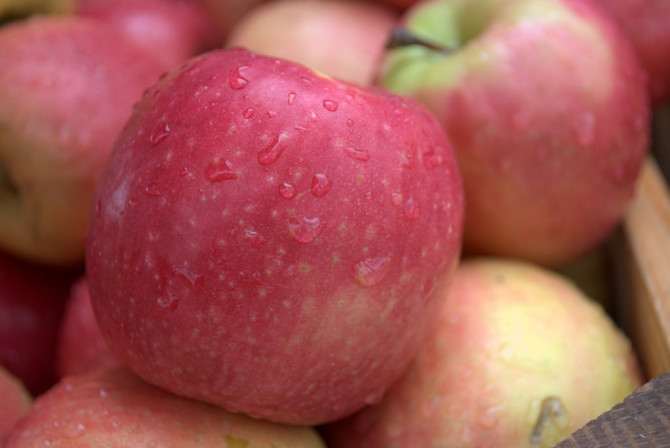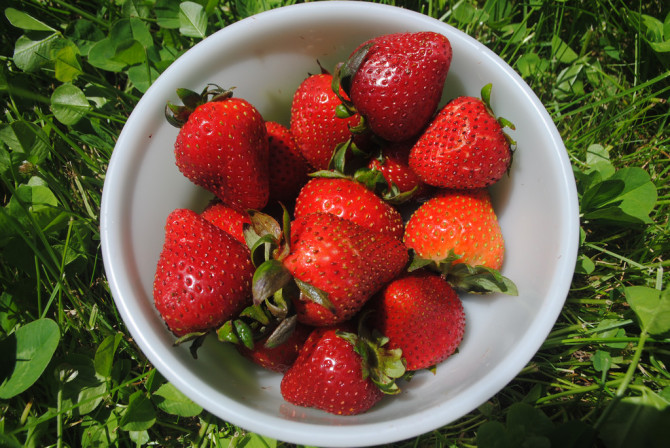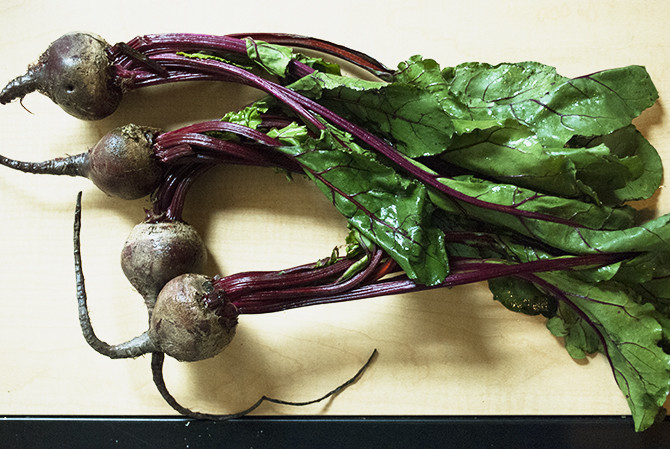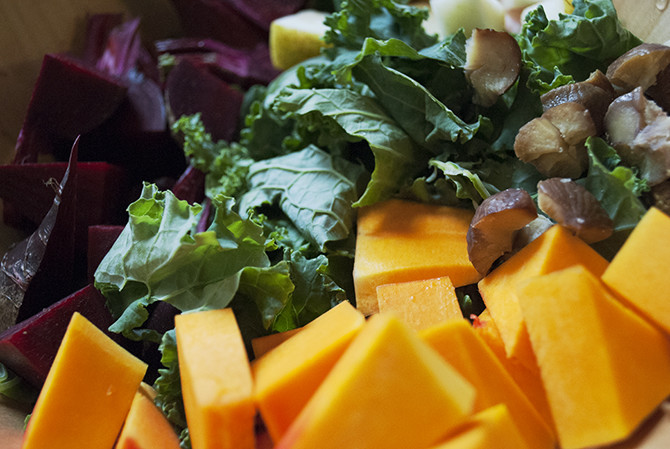You go into a grocery store and you see a crazy amount of food choices. There’s even an entire aisle dedicated to snacks. Buuuut, there’s a catch — it ain’t natural, and it did not grow on a farm nearby. Although these cheap, mass-produced products make stocking up easy with their longer shelf lives and creative flavoring (aka artifical AF), it’s important to at least look at the positives of eating seasonally over the processed garbage.
First, what exactly is eating seasonally? It means picking your palate based on what is growing during that time of year. It doesn’t have to mean organic, however it does mean getting food that is grown outside (reminder that Pop-Tarts and Oreos don’t grow on trees). #SpoonTip: Extra points for eating seasonally and locally.

Photo by Scott Harrington
The major hype surrounding eating seasonally has lots to back it up. In a world where mass producing can replace flavor and nutrition for more #cashmoney, it may be ideal for customers to go back a few generations for food inspo.
“If your great-grandmother wouldn’t recognize what it is, don’t eat it,” said journalist Michael Pollan. Basically, the best food for taste and health comes right from the ground. Avoid the fake shit from mass-produced food that is pure filler, and instead go for maximum flavor from foods right outside your home.
Easier said than done, right? With avocados, strawberries, and all the produce you desire available year-round due to modern transportation and technology, you don’t have to eat seasonally because it’s not necessary. Our ancestors had no other choice but to eat seasonally. You, however, have the choice to eat whatever you want, whenever you want — but does that mean you should?

Photo by Liana Lis
Chef Dan Barber is another person who recognizes the power of eating seasonally. He has brought the movement to his restaurants, Blue Hill and Blue Hill at Stone Barns. Barber realized that eating food directly from farms brings the best flavor, even if the winter options are less exciting.
Barber worked with farms to get more flavor, and even created a new kind of butternut squash, named the “honeynut squash.” Barber had a revelation — by making the squash smaller, it would reduce the water content, and create a stronger and denser flavor. This kind of thinking — revolutionizing the way we think about eating (and more importantly, creating) our food — is the direction the food world is moving in.
Eating seasonally and locally is an even better combination. Not only are you eating the best flavor by eating seasonally, but by eating locally you are supporting your local economy. When you eat locally, you are also helping the environment. Eating locally reduces fossil fuels in the atmosphere by not using transportation around the world for food you can find in your own community.
Also, eating seasonally and locally just outright tastes better. When foods are preserved and shipped far away, the process to maintain “freshness” causes the foods to lose flavor. So, by eating seasonally, you’ll get more flavorful food, which will be more enjoyable to eat. Obviously.

Photo by Hunter Siegrist
Let’s also consider the ethical stuff. We should not let out unnecessary fossil fuels into the planet we are living on in order to get food we can find locally. And, why not boost your local economy? Get to know the farmers in your area, find out what food grows when, who grows what, etc. Build a relationship with your farmer and tell them what you would like. Learn from your farmer; how do you use this herb? How do you cook this vegetable? The farmer will know best, and most of the time, you’ll gain information you would not have learned in a grocery store by going straight to the person who knows it best.
Also, by eating seasonally and locally, the cost of the food is much lower. Since your food is right next door, there is no added cost for the transportation of the food. Since the food will be growing in season, there will be an abundance of it, which will lead to better prices for the consumer.

Photo by Hunter Siegrist
Something you may still be concerned about sill is shelf life. It is true that you can buy a box of processed pasta or soup or vegetables in the grocery store and it can last in your pantry for weeks at a time. But, that long shelf life is completely unnatural. Food should not last for weeks and weeks. The cost of buying seasonally and locally is that you should eat it right away, but it shouldn’t be that hard with the better flavor, anyway.
Since eating seasonally has so many benefits, it makes sense that people are gaining an appreciation for this food movement. The only drawback, though, is eating seasonally is currently not sustainable for US market demands. However, that does not mean it is not worth a shot. So, give it a try.


